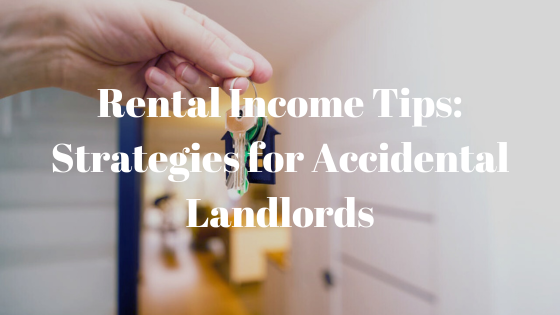What is the Implied Covenant of Quiet Enjoyment?

If you are a first time landlord, there are many things that you might find to be overwhelming, from managing your property to drafting good lease agreements. One of the most important aspects of a lease agreement is the implied covenant of quiet enjoyment.
The implied covenant of quiet enjoyment is a legal term that often sparks debates and creates confusion. In this article, we’ll analyze the concept to discover its implications for landlord-tenant relationships.
What is an implied covenant?
Before we can dive into what quiet enjoyment means for landlords, it’s important to understand the legal concept of an “implied covenant”. This term means that two parties have an agreement that is inferred or otherwise implied to ensure certain intentions are met.
Rental agreements are some of the most common documents featuring this type of legal principle. The word “implication” is used to designate that certain rights and responsibilities do not have to be described in detail within the rental contract. As a landlord, you are unable to ask a tenant to wave these rights.
The basic rights of tenants are “implied”. One of these rights is protection against disturbances. The other legal expectation is the warranty of habitability. When you have these covenants in place, the tenant’s inalienable rights receive full protection.
For more information about landlord-tenant laws in North Carolina, check out our post here.
What does “quiet enjoyment” mean?
Now that we know more about implied covenants, what are the specifics of “quiet enjoyment”? This implication in lease agreements aims to protect a renter’s right to peace and quiet together with complete privacy. However, it’s not an easy task defining quiet enjoyment in legal terms.
Since “quiet enjoyment” can mean a variety of things to different people, lease agreements go with a blanket term instead. In any case, quiet enjoyment means that the tenants can enjoy their home without any disruptions.
They can do whatever they want inside the rented living spaces unless their behavior is against the law or violates the terms of the lease.
What does “quiet enjoyment” mean in practice?
Tenants can expect to live in an environment that doesn’t host recurring disruptions. Disruptions can take on many forms. For instance, loud neighbors playing drums during the night is a huge disruption, but landlords who are constantly entering the premises present a significant disturbance as well.
Landlords inspecting the property too often is a question of privacy. It’s true that landlords can enter the rental to inspect safety issues, make necessary repairs, and even show the property to prospects toward the end of the lease. But all of these actions require proper notice of entry.
Otherwise, some landlord activity could be classified as harassment, or, at the very least, a violation of the right to quiet enjoyment.
What happens when a landlord violates the implied covenant?
The violation of the implied covenant of quiet enjoyment can have costly consequences to the concerned landlord. Tenants may withhold regular rent payments or even break the lease.
In every situation, it’s important to weigh the unique circumstances of the case and see how they reflect on the federal, state, and local laws. But serious violations will likely result in the tenant’s right to deal with the violations straight away.
A single nuisance may not be enough to warrant a non-payment of rent or break in the lease. However, recurring nuisances that fail to get addressed should equip the tenant with the necessary legal arguments to take the matters into their own hands.
Typical landlord violations of quiet enjoyment include:
- Restricting the utilities: You should never restrict your renter from basic utilities, including heating, A/C, water, and electricity. The same holds true for locking the renter out of their rental.
- Spying on the tenant in any form or manner: You cannot invade their private space. For instance, opening their mail or going through their personal belongings is a huge breach of privacy.
- Disrupting normal social activities: You cannot prohibit your tenants from having guests over. For instance, if a dinner party is quiet and doesn’t carry on well into the early hours, there is no reason to forbid this behavior. Regular social activities should always be allowed.
- Entry without prior notice: You should always give enough notice to your tenants before entering the unit. However, it’s better not to overstep the reasonable expectation of entering the unit only for a good reason.
- Ignoring noise complaints: If your tenant complains about noise or other disruptions, you should always address these complaints in a timely manner. The failure to resolve these complaints is considered a lease violation.
Can tenants violate the implied covenant of quiet enjoyment?
It is possible that one tenant’s activities could affect another renter’s quiet enjoyment of the rental. As a landlord, you may encounter such a situation if you own a multi-unit property. One of your tenants could interfere with the peace and quiet of another tenant.
Does this covenant ensure complete silence?
A common misunderstanding is that “quiet enjoyment” implies complete silence. That is not the case. Some disruptions and noise are always expected. The normal level of noise depends on where the rental property is situated.
The expected noise levels of rental properties located in the middle of a major Downtown area are going to be higher compared to small-town rentals. To qualify under the covenant of quiet enjoyment, the disruptions need to be serious nuisances instead of mild annoyances.
In a Nutshell: Implied Covenant of Quiet Enjoyment
The implied covenant of quiet enjoyment regulates the tenants’ right to privacy, peace, and quiet in their rental home. This is a basic, inalienable right that landlords are not allowed to breach.
However, the concept doesn’t imply complete silence. It’s focused more on the failure of addressing noise complaints, illegal entry, and similar behaviors.
For more help on understanding tenants rights, reach out to a professional property management company for help!









